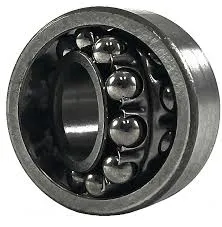
Dec . 05, 2024 22:20 Back to list
High-Performance Bearing Pressing Equipment for Precision Assembly Solutions
The Importance of Bearing Pressing Machines in Modern Manufacturing
In the realm of modern manufacturing, precision and efficiency are paramount. One of the critical components that facilitate these elements is the bearing, an essential part of numerous mechanical systems. To ensure these bearings function accurately under various conditions, bearing pressing machines play a vital role. This article explores the significance of bearing pressing machines, their functionality, and their impact on manufacturing processes.
Understanding Bearing Pressing Machines
Bearing pressing machines are specialized tools designed to install bearings onto shafts or into housings with precision and force. These machines use hydraulic or mechanical systems to apply pressure, ensuring that the bearing is seated correctly without damaging it or the surrounding components. Typically, the pressing operation must be performed at precise angles and with controlled forces to avoid misalignment or bearing deformation.
The design of such machines can vary significantly, ranging from simple manual presses to sophisticated automated systems. Manual machines often require operators to apply force physically, while automated presses utilize programmable logic controllers (PLCs) to execute pressing tasks with minimal human intervention. This automation not only improves efficiency but also enhances the consistency and repeatability of the pressing process.
Key Benefits of Using Bearing Pressing Machines
1. Precision Installation One of the primary advantages of using bearing pressing machines is the precision they offer. Properly installed bearings reduce friction and wear, leading to increased operational efficiency and longevity of machinery.
2. Reduced Risk of Damage Incorrectly installed bearings can suffer from premature failure or damage to surrounding components. Bearing pressing machines apply the correct amount of force uniformly, significantly minimizing the risk of bending or cracking.
bearing pressing machine

3. Increased Productivity In high-volume manufacturing environments, time is of the essence. Automated bearing pressing machines can perform installations much faster than manual methods, leading to enhanced productivity and reduced labor costs.
4. Consistency and Quality Control Automated machines provide a level of consistency in the installation process that manual methods often cannot achieve. This uniformity is crucial in maintaining quality standards, ensuring that each bearing meets the specifications required for optimal performance.
5. Adaptability Modern bearing pressing machines can be equipped with various attachments and settings to accommodate different sizes and types of bearings. This flexibility allows manufacturers to use a single machine for a range of products, further optimizing production.
The Future of Bearing Pressing Technology
As technology continues to evolve, bearing pressing machines are becoming more advanced. Innovations such as IoT integration allow for real-time monitoring of pressing operations, leading to data-driven decision-making for maintenance and quality control. Furthermore, advancements in materials and design are increasing the durability and efficiency of these machines, making them an even more integral part of manufacturing processes.
Conclusion
Bearing pressing machines are a cornerstone of modern manufacturing, impacting the efficiency and reliability of countless applications across various industries. With their ability to deliver precise, consistent, and damage-free installations, these machines are indispensable in the quest for high-quality manufacturing environments. As technology advances, the role of bearing pressing machines will likely become even more crucial, driving innovation and performance in engineering and manufacturing sectors. In this ever-evolving industry, investing in state-of-the-art bearing pressing machines can provide a significant competitive edge.
Latest news
-
Premium Deep Groove Ball Bearings | High Speed & Reliability
NewsAug.29,2025
-
Durable Scaffolding Clamps - Secure & Reliable Tube Connectors
NewsAug.28,2025
-
Common Failures in Thrust Ball Bearings and Solutions
NewsAug.22,2025
-
How Tapered Roller Bearings Can Take Shock Loads
NewsAug.22,2025
-
Angular Bearings in High-Precision Spindles
NewsAug.22,2025
-
The Impact of Misalignment on Cylindrical Roller Bearing Performance
NewsAug.22,2025
